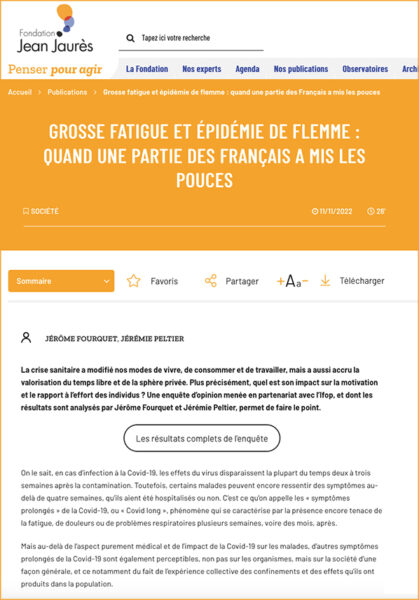Enterprises do not really have a legal status as such. Their status is, most often, that of a commercial company, which assigns them only one purpose: to make profit for their shareholders. This state of affairs results, as Hubert Landier explains, from the dominant 18th-century concern with property, freedom of trade and the predominance at the time of small workshops run along family lines. However, enterprises are made up of a range of skills, expertise and occupational abilities developed by their workers (waged or otherwise), service-providers, subcontractors and clients, whose essential role is well worthy of consideration. Hence the emergence of the idea of “corporate social responsibility” (CSR) and, more recently, of “social dialogue”.
Through social dialogue, progress has been made, for example, to achieve a better balance between shareholders and employees, if not indeed a measure of ethics in relations between stakeholders. But this is not sufficient, particularly when, as workers are increasingly particular about their working conditions, clients increasingly vigilant about how goods and services are produced, and enterprises under scrutiny for their environmental impact, they set excessive store by the short-term profit of their shareholders to the detriment of all other considerations.
A reform of the enterprise is therefore necessary in France, a reform which has been little discussed for many years, even though financialization has increased enormously in scope, producing the devastating effects that we saw in 2007-8. This was the reason for the report commissioned from Nicole Notat and Jean-Dominique Senard, L’Entreprise, objet d’intérêt collectif [The Enterprise, an Object of Collective Concern] and now for the draft PACTE law (Plan d’action pour la croissance et la transformation des entreprises: Action Plan for the Growth and Transformation of Enterprises) which is due to go before the French parliament in Autumn. However, as Hubert Landier reminds us here, “you do not change society by decree” (Michel Crozier); it is behaviour that has to be modified, particularly the behaviour of those in charge of the governance of enterprises and of all those participating in the collective endeavour. What is actually at stake is a shift from a logic of creating exclusively shareholder value to a logic of creating value for all. An immense undertaking!




